Coach Learning

How important is a golf coach in learning the sport ?
**The Importance of a Golf Coach in Learning the Sport** Learning golf, like any sport, requires dedication, practice, and guidance. One of the most crucial aspects of learning golf is having a good coach. A golf coach plays a significant role in shaping a player's skills, understanding of the game, and overall development. In this response, we will explore the importance of a golf coach in learning the sport. ### **1. Providing Expertise and Knowledge** A golf coach brings years of experience and knowledge to the table. They have a deep understanding of the mechanics of the game, including swing techniques, club selection, and course management. This expertise allows them to provide personalized instruction tailored to each player's needs, helping them improve their skills faster and more efficiently. #### **Key Points:** - Understanding swing mechanics - Club selection advice - Course management strategies ### **2. Identifying and Correcting Mistakes** One of the biggest challenges for beginners is identifying and correcting mistakes in their technique or approach. A golf coach can quickly spot these errors and provide targeted feedback and corrections. This not only helps players avoid developing bad habits but also speeds up their learning process. #### **Key Points:** - Identifying technical flaws - Providing targeted feedback - Preventing the development of bad habits ### **3. Motivation and Accountability** Learning any sport can be frustrating at times, and golf is no exception. A golf coach serves as a source of motivation, pushing players to reach their potential and overcome obstacles. Additionally, having someone to be accountable to can increase a player's commitment to their practice routine and overall improvement. #### **Key Points:** - Providing motivation during challenging times - Encouraging perseverance and resilience - Holding players accountable for their progress ### **4. Customized Training Plans** Every golfer has different strengths, weaknesses, and goals. A golf coach can create customized training plans that cater to each individual's needs, ensuring they focus on areas that need improvement while reinforcing their strengths. This personalized approach leads to more effective training sessions and better overall results. #### **Key Points:** - Tailored training plans based on individual needs - Focusing on areas for improvement - Reinforcing strengths for optimal performance ### **5. Access to Resources and Networking Opportunities** Golf coaches often have access to resources such as training facilities, equipment, and networking opportunities within the golf community. These resources can be invaluable for players looking to take their game to the next level. From connecting with other professionals to gaining access to advanced training tools, a coach's network can significantly impact a player's development. #### **Key Points:** - Access to quality training facilities and equipment - Networking opportunities within the golf community - Connections with other professionals for mentorship and guidance In conclusion, having a golf coach is essential for anyone looking to learn and excel in the sport of golf. From providing expert knowledge and personalized instruction to offering motivation and access to valuable resources, a golf coach plays a critical role in a player's journey towards mastering the game.

Can I get a personal coach at a tennis training camp ?
Tennis training camps offer various services, including group lessons, individual lessons, and personalized coaching. Having a personal coach at a tennis training camp can provide you with many benefits, such as personalized attention, customized training plans, accelerated learning, and motivation. To find a suitable coach, research the camp, contact them directly, ask for recommendations, schedule a meeting, and consider the cost. With the right coach, you can take your game to the next level and achieve your tennis goals.

Is it necessary to hire a personal coach to improve sports skills ?
Improving sports skills is a common goal for many athletes, from amateur enthusiasts to professional competitors. One question that often arises is whether it is necessary to hire a personal coach to achieve this objective. In this response, we will explore the advantages and disadvantages of hiring a personal coach and provide some recommendations based on individual needs and circumstances. Advantages of Hiring a Personal Coach: Expertise and Experience: A personal coach brings expertise and experience to the table. They have spent years honing their craft and learning the intricacies of their sport. This knowledge can be invaluable when it comes to improving an athlete's technique, form, and overall performance. Customized Training Plans: Personal coaches create customized training plans tailored to each athlete's specific needs, goals, and abilities. This personalized approach ensures that the athlete is receiving the most effective and efficient training possible, which can lead to faster progress and better results. Accountability and Motivation: Having a personal coach provides a sense of accountability and motivation. The coach serves as a mentor and cheerleader, pushing the athlete to reach their full potential while also providing support and encouragement along the way. Injury Prevention and Recovery: Personal coaches are trained in injury prevention and recovery techniques. They can help athletes identify potential risk factors and develop strategies to minimize the likelihood of injuries occurring. Additionally, they can guide athletes through proper recovery protocols after workouts or competitions. Disadvantages of Hiring a Personal Coach: Cost: Hiring a personal coach can be expensive, particularly for top-level coaches with extensive experience and credentials. This cost may not be feasible for all athletes or may require significant financial investment over time. Availability and Accessibility: Personal coaches may not always be available at convenient times or locations for the athlete. This can make it difficult to maintain consistent training schedules or receive timely feedback and guidance. Compatibility Issues: Not all athletes will click with their personal coach, leading to compatibility issues that can hinder progress and enjoyment of the sport. It is important to find a coach who understands the athlete's goals, personality, and learning style. Recommendations Based on Individual Needs and Circumstances: Assess Your Goals and Level of Commitment: Before deciding whether to hire a personal coach, assess your goals and level of commitment to your sport. If you are serious about improving your skills and achieving specific milestones, investing in a personal coach may be worth considering. However, if you are primarily focused on recreational activities or occasional competitions, self-directed training may be sufficient. Consider Your Budget and Resources: Evaluate your budget and resources to determine if hiring a personal coach is financially viable for you. There may be alternative options such as group coaching sessions, online coaching programs, or working with less experienced coaches that offer similar benefits at a lower cost. Research Potential Coaches Carefully: If you decide to pursue hiring a personal coach, research potential candidates carefully. Look for coaches with relevant qualifications, experience working with athletes at your level, and positive reviews from previous clients. Schedule initial consultations to gauge compatibility and discuss your goals and expectations. In conclusion, hiring a personal coach can be beneficial for athletes looking to improve their sports skills by providing expertise, customized training plans, accountability, motivation, injury prevention, and recovery support. However, it is essential to consider individual needs, goals, budget, and resources before making this decision. By carefully evaluating these factors and researching potential coaches, athletes can make informed decisions about whether hiring a personal coach is necessary for them.
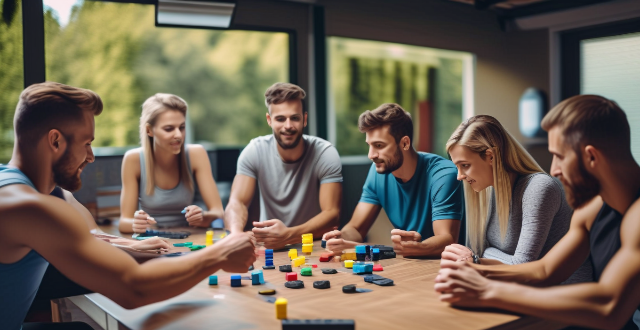
What are the key skills required to become a successful sports coach ?
To become a successful sports coach, one needs to possess strong communication skills, leadership abilities, tactical and strategic thinking, knowledge of sport and fitness training, patience and empathy, motivation and influence, organizational skills, and commitment to continuous learning. These skills help coaches communicate effectively with their athletes, manage team dynamics, strategize game plans, create effective workout routines, build an inclusive environment, motivate athletes towards success, and stay updated with the latest advancements in sports science. By developing these key skills, coaches can inspire their teams to reach new heights and enjoy success in their respective sports.

Is it necessary to hire a professional coach to create an effective sports training program ?
The text discusses the necessity of hiring a professional coach for creating an effective sports training program. It outlines the advantages of having a coach, including personalized plans, expertise, motivation, and injury prevention. The article also suggests that hiring a coach is not always necessary but can be beneficial in certain situations, such as for beginners or highly competitive athletes. Ultimately, the decision to hire a coach depends on individual needs and goals.

What are some common challenges faced by new sports coaches ?
Becoming a new sports coach can be an exciting and rewarding experience, but it also comes with its own set of challenges. Here are some common challenges faced by new sports coaches: 1. Establishing Authority and Respect: Gaining the respect and trust of your athletes is crucial to your success as a new coach. This can be challenging, especially if you are young or inexperienced. You may need to work harder to establish your authority and earn the respect of your team. 2. Developing Effective Communication Skills: Effective communication is key to being a successful coach. As a new coach, you may struggle to communicate effectively with your athletes, parents, and other coaches. You will need to work on your ability to give clear instructions, provide feedback, and listen actively to your athletes' needs and concerns. 3. Building Team Chemistry: Building a strong team culture and chemistry takes time and effort. As a new coach, you may find it challenging to create a sense of unity and cohesion among your athletes. You will need to focus on building relationships, fostering a positive team environment, and promoting a culture of inclusivity and support. 4. Managing Time and Prioritizing Tasks: As a new coach, managing your time effectively can be a challenge. You will need to prioritize tasks such as game preparation, practice planning, player development, and administrative duties. Learning to delegate responsibilities and manage your time wisely is essential for success. 5. Dealing with Adversity: Coaching is not always smooth sailing. As a new coach, you may face adversity such as losing games, dealing with injuries, or handling conflicts within the team. It is important to develop resilience and learn how to handle difficult situations calmly and constructively. 6. Continuing Education and Development: As a new coach, there is always room for growth and improvement. You should strive to continue learning about coaching techniques, sports psychology, fitness training, and other relevant topics. Attending coaching clinics, workshops, and conferences can help you stay up-to-date with the latest trends and best practices in sports coaching.

How much do sports coaches earn on average ?
The article discusses the factors affecting sports coaches' salaries, including the level of competition, the sport, and the location. It also provides average salary ranges for professional, college, high school sports coaches, and personal trainers/fitness coaches. Finally, it suggests ways to increase earnings as a sports coach, such as gaining more experience, specializing in a niche area, or starting your own business.

What are some effective strategies for lifelong learning ?
Lifelong learning is crucial for personal growth and adaptability. Effective strategies include setting clear goals, creating a learning plan, leveraging technology, practicing active learning, seeking mentorship, and embracing failure for continuous improvement.
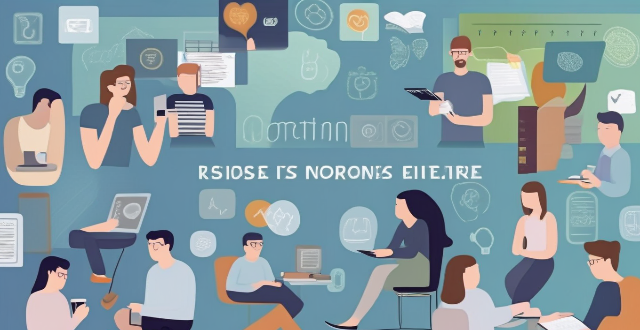
Can you recommend any good online learning resources for language learning ?
Here are some good online learning resources for language learning: Duolingo, Rosetta Stone, Memrise, Babbel, italki, Lingoda, Busuu, Coursera, Edx, and FluentU. These platforms offer courses in various languages and use different approaches to teaching, such as interactive lessons, immersive experiences, flashcards, conversation skills, one-on-one tutoring, and real-world videos.

What are the best sports careers for someone who loves competition ?
Competitive individuals have various sports career options, including professional athlete, coach/manager, sports analyst/journalist, referee/umpire, personal trainer/fitness instructor, sports agent/manager, and event planner/promoter. Each path offers unique opportunities to thrive on competition and excel in the sporting world.
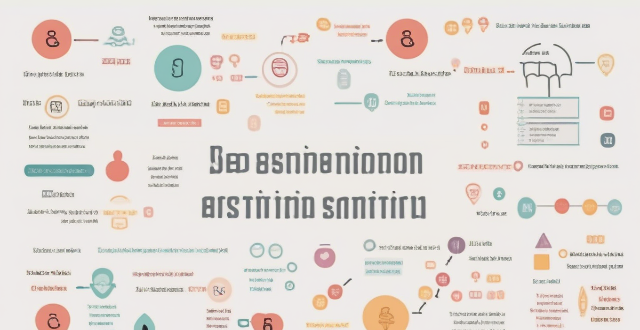
How can I develop a habit of lifelong learning ?
Lifelong learning is crucial for staying relevant and competitive. To develop this habit, set clear goals, create a learning plan, make learning part of your daily routine, embrace challenges, stay curious, connect with others, reflect on your journey, and continuously update your skills.

What are the best online learning resources for beginners ?
The text provides a list of online learning resources for beginners, including Khan Academy, Coursera, edX, Udemy, Codecademy, Duolingo, Skillshare, and LinkedIn Learning. Each resource offers courses in various subjects, from computer science to language learning, and many are free or have affordable options available.

How can employers encourage and support lifelong learning among employees ?
Employers can support lifelong learning by offering resources, encouraging participation in training programs, providing opportunities for career development, and creating a collaborative learning environment.
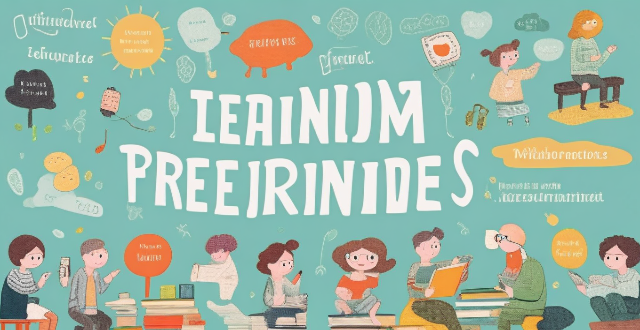
Are there any good online learning resources for language learning ?
Good online learning resources for language learning include Duolingo, Memrise, Rosetta Stone, Babbel, and Busuu. Each platform has its unique features and strengths, such as interactive lessons, memory techniques, immersive experiences, conversational focus, and community support. These resources can help learners achieve fluency in their target language by providing engaging and effective ways to learn vocabulary, grammar, pronunciation, and cultural insights.

What are some benefits of using online learning resources compared to traditional classroom learning ?
Online learning resources offer advantages over traditional classroom learning, including flexibility and convenience, cost savings, personalized learning experiences, exposure to diverse cultures, and development of technology skills.
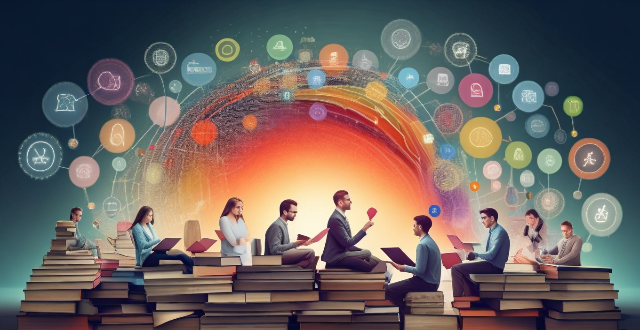
What is lifelong learning and why is it important ?
Lifelong learning is the continuous process of acquiring new knowledge, skills, and attitudes throughout one's life. It is important for personal development, professional growth, social contribution, economic benefits, health and well-being, and global citizenship. To embrace lifelong learning, individuals can set learning goals, create a learning plan, seek out opportunities, stay curious, reflect on their learning, and share their knowledge with others.
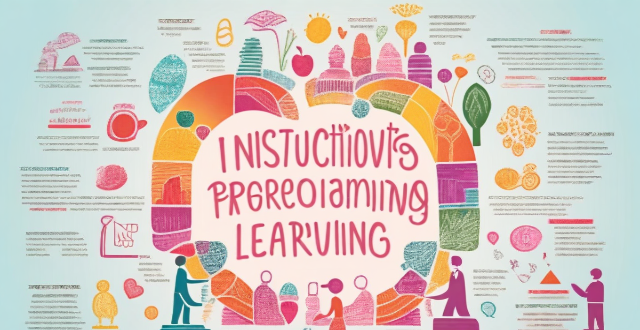
What role do educational institutions play in promoting lifelong learning ?
Educational institutions promote lifelong learning by encouraging a love for learning, providing access to educational resources, offering continuing education opportunities, and fostering collaboration and partnerships.

How do I start learning golf ?
Golf is a popular sport that can be enjoyed by people of all ages and skill levels. If you're interested in learning how to play golf, here are some steps to help you get started: 1. Understand the basics of golf, including the rules and etiquette. 2. Choose the right equipment, such as a set of beginner-friendly clubs. 3. Take lessons with a PGA professional for personalized instruction. 4. Practice regularly at a driving range, putting green, or chipping area. 5. Play on an actual golf course once you've gained confidence from practicing. 6. Join a golf community to enhance your learning experience and meet other players. 7. Stay patient and have fun while enjoying the process of learning and playing golf.

How does technology facilitate lifelong learning ?
Technology has revolutionized education, making it more accessible, interactive, and personalized. It facilitates lifelong learning through online resources, digital libraries, simulation software, gamification, adaptive platforms, mobile learning, social media groups, online workshops, instant feedback, cost efficiency, and globalization of education. Technology offers a wealth of benefits for learners of all ages and backgrounds.

What are some of the most memorable moments in sports movies ?
Sports movies often showcase the triumphs and struggles of athletes, capturing our hearts and inspiring us to be our best selves. Here are some of the most memorable moments in sports movies: 1. The Miracle on Ice (Miracle, 2004) - Herb Brooks coaching the 1980 U.S. men's Olympic hockey team to victory over the Soviet Union during the Cold War. 2. Rocky Balboa's Victory (Rocky, 1976) - Sylvester Stallone stars as an underdog boxer who gets a chance to fight for the world heavyweight championship. 3. The Blind Side (The Blind Side, 2009) - Sandra Bullock stars as Leigh Anne Tuohy, who adopts Michael Oher, a homeless teenager with a troubled past, and helps him become a successful football player. 4. Remember the Titans (Remember the Titans, 2000) - Denzel Washington stars as Herman Boone, an African American coach tasked with integrating a newly formed high school football team in Virginia during the civil rights era. 5. Hoosiers (Hoosiers, 1986) - Gene Hackman stars as Norman Dale, a basketball coach who takes on the challenge of leading a small-town Indiana high school team to victory in the state championship.

What is the difference between a personal trainer and a sports coach ?
This article compares and contrasts the professions of personal trainers and sports coaches, highlighting their similarities and differences in terms of clientele, goals, training programs, feedback and guidance, and areas of specialization. Personal trainers work with individuals to improve their overall health and fitness levels, while sports coaches work with athletes or teams to improve their performance in a specific sport. The article provides a comprehensive overview of the key differences between these two professions, helping readers understand the unique roles and responsibilities of each.
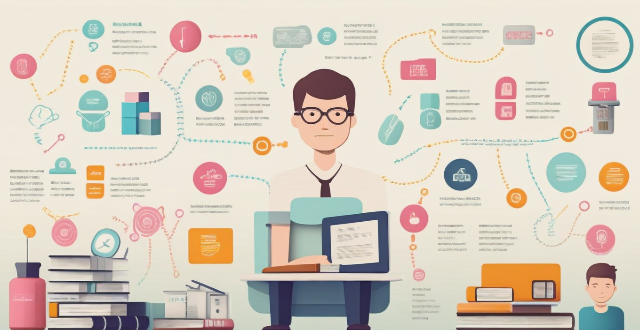
What are the benefits of using a remote education platform for learning ?
Using a remote education platform for learning offers numerous benefits that enhance the overall learning experience, including flexibility and convenience, personalized learning, collaboration opportunities, cost savings, access to quality education, improved learning outcomes, and environmental sustainability.
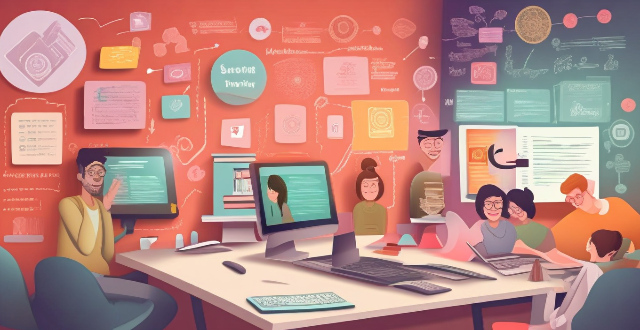
How does personalized learning through adaptive software benefit students ?
Adaptive software in education offers personalized learning experiences, enhancing student engagement, academic performance, and key skill development. It supports inclusive education, prepares students for future challenges, and makes learning more efficient and effective.
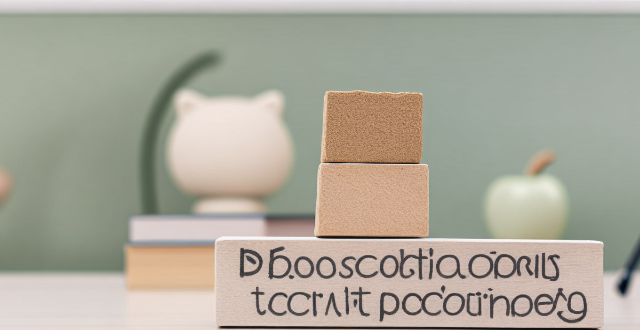
How does educational psychology impact student learning ?
Educational psychology plays a crucial role in understanding and enhancing student learning. It helps educators understand cognitive development, enhance motivation and engagement, promote social-emotional learning, address diverse learning needs, and evaluate teaching strategies and interventions. By incorporating insights from educational psychology into their practice, teachers can create a more effective and supportive learning environment for all students.

How does lifelong learning impact career development ?
Lifelong learning is a continuous process of acquiring new knowledge and skills that can significantly impact career development. It enhances skills, adaptability, creativity, personal growth, networking opportunities, and career longevity. By engaging in lifelong learning, individuals can stay relevant in their professions, adapt to changing job requirements, and increase their chances of career success.
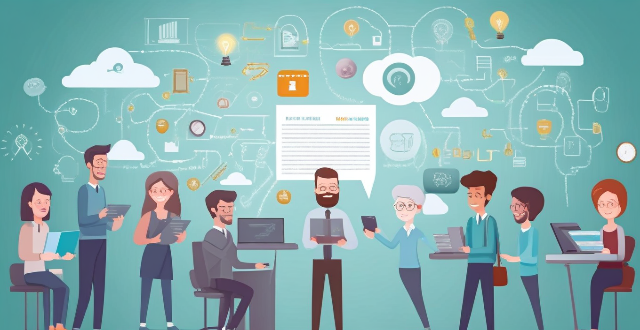
How do online learning platforms enhance student engagement and performance ?
The article discusses how online learning platforms enhance student engagement and performance. It mentions personalized learning experiences, interactive content and multimedia, collaboration and communication tools, gamification and rewards, flexibility and convenience, and immediate feedback and support as key features of these platforms that contribute to improved student outcomes.
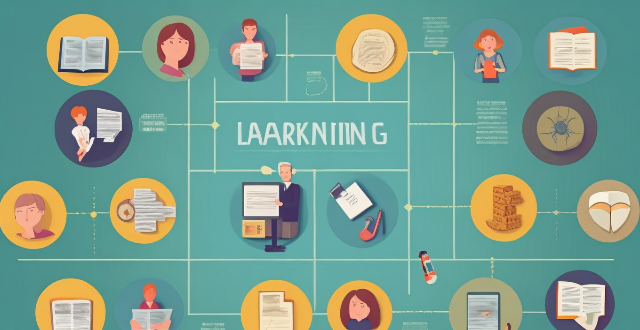
What are the benefits of lifelong learning ?
Lifelong learning, a process of continuous and voluntary learning throughout one's lifespan, offers numerous benefits that positively impact an individual's personal and professional life. These include improved cognitive abilities, increased self-esteem and confidence, personal fulfillment and satisfaction, enhanced career opportunities, higher earning potential, greater professional network, economic growth, social inclusion and cohesion, and environmental sustainability. By embracing the concept of lifelong learning, individuals can lead richer, more fulfilling lives while contributing positively to society as a whole.

What role does intrinsic motivation play in learning and how can I cultivate it ?
Intrinsic motivation is a key factor in enhancing the learning process. It leads to increased engagement, persistence, and deeper understanding of material. To foster this type of motivation, one should focus on promoting autonomy, competence, relatedness, personal interest, and a mastery orientation. Strategies include offering choices, providing clear feedback, building community, connecting to interests, and emphasizing the learning journey over just the outcome.
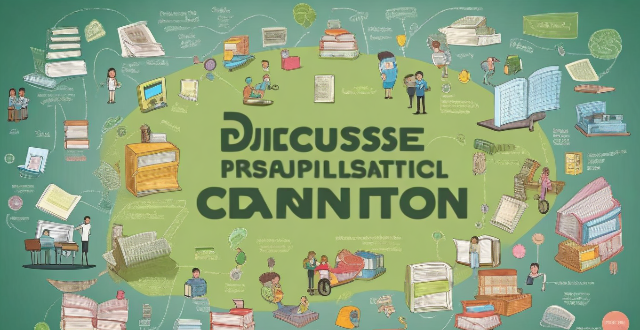
Can remote education platforms replace traditional classroom learning ?
The text discusses the pros and cons of remote education platforms and concludes that they cannot fully replace traditional classroom learning due to lack of social interaction, difficulty with self-motivation, and limited hands-on experience. However, a combination of both methods may provide a well-rounded education.

How do language learning apps incorporate grammar and vocabulary into their lessons ?
Language learning apps incorporate grammar and vocabulary into lessons through interactive contextualized learning, gamified exercises, spaced repetition techniques, personalized learning paths, multimedia content, social interaction opportunities, and offline learning features. These methods aim to make the acquisition of a new language efficient, engaging, and adaptable to individual learners' needs and preferences.